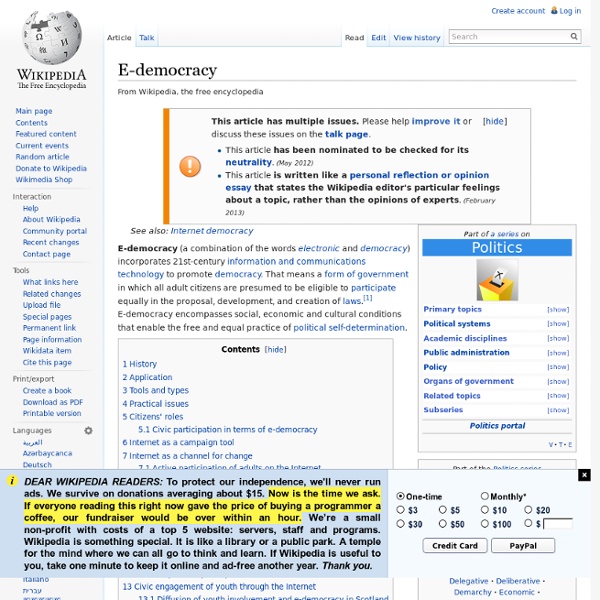E-democracy

The role of civil society in decentralisation and alleviating poverty: an exploratory case study from Tanzania
In many developing countries decentralisation efforts have been planned and implemented as a means to improve service delivery to all citizens, to increase citizen participation, and to improve good governance at the sub-national level. However, until recently, poverty reduction has not been a central feature of decentralisation measures until recently. Donors have begun to realise the importance and value of non-state actors in improving the effectiveness of the state in this area. This paper examines the relations between the concepts of decentralisation, poverty alleviation and civil society, and recent policy developments in the context of Tanzania. The paper notes the following: Tanzania has a five level governance system including village, ward, district, region and central levels.
Can hyperlocal social networks help a municipality to provide better services?
by Olena Ursu I first met Oleg Levchenko, executive director of the civil society organization, Podillya Agency for Regional Development, during aconference on smart cities, organized by UNDP in Ukraine the municipality of Vinnytsya last year. The challenge: I was impressed by Oleg’s passion and commitment, and that’s also when I first heard his concerns about citizens who were very ready to complain about their problems and who expected these problems to be solved by the authorities. He called for a new approach to change the nature of citizen engagement in local decision-making – he wants citizens to help come up with solutions to community problems, and for them to help carry out the solutions too. Oleg Levchenko presents e-governance and e-democracy tools aimed at improving municipal governance in Vinnytsya (in Ukrainian) The idea is to have a hyperlocal social network for Vinnystya, where citizens and local authorities can discuss and share their ideas for a better city.
Related:
Related:



